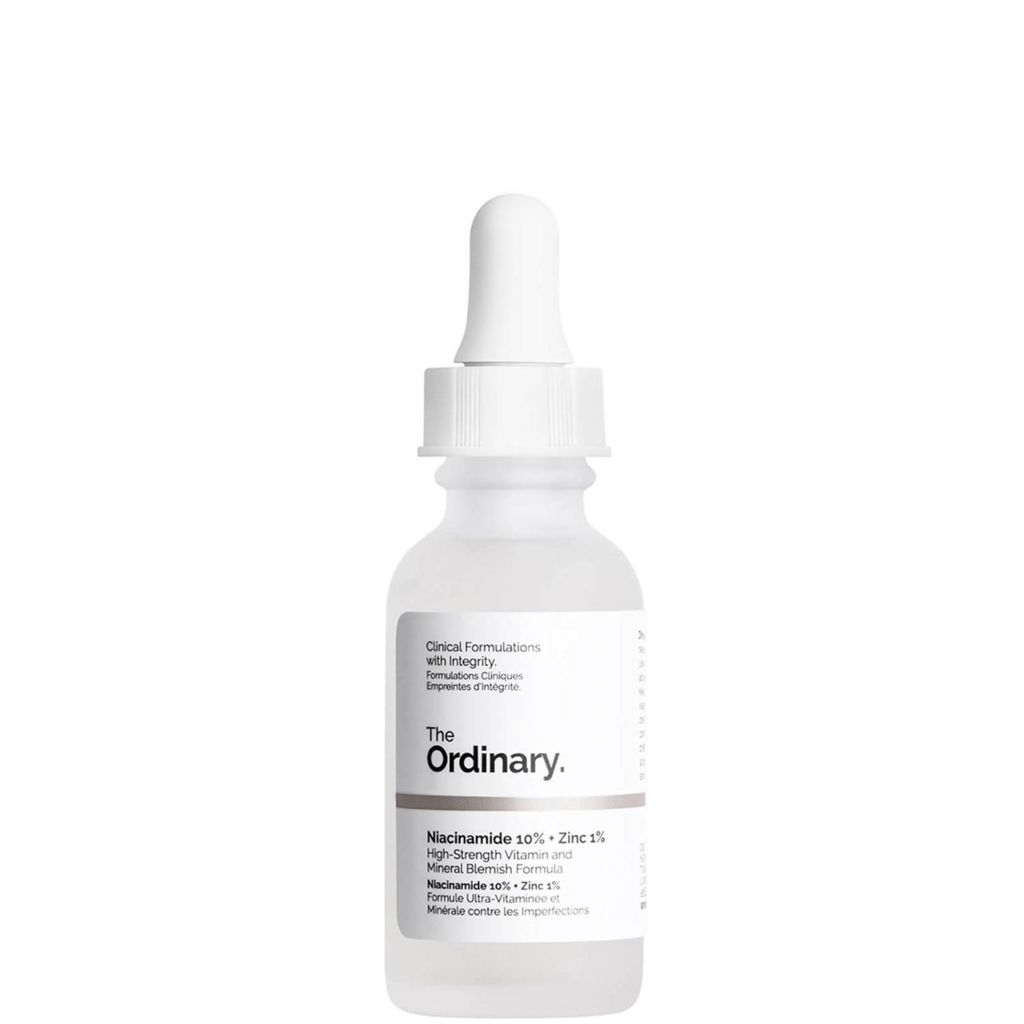You’ve no doubt heard of niacinamide serums for the skin, but do you know what it can actually do for your skin? Today, we’ll take you through the ins and outs of niacinamide! Although niacinamide serums are not new, in recent years, the ingredient has been popping up everywhere from cosmetics to dermatologists’ offices. But what exactly IS niaciamide and what can a niacinamide serum do for your skin?
What is Niacinamide?

Also called nicotinamine, niacinamide is one of two forms of vitamin B3: niacin, which is usually found in supplements, and nitcotinic aicd. These two elements, combined, are touted to help those with skin conditions such as acne, rosacea, wrinkles, and hyperpigmentation. But, does it actually work? Is there any science behind this very popular serum?
The Science Behind Niacinamide
According to scientists, niacin, (which includes niacinamide and nicotinamide), is a precursor to two very important biochemical cofactors: nicotinamide adenine dinucleotide (NAD+/NADH) and nicotinamide adenine dinucleotide phosphate (NADP+). If you’re not sure what you just read, don’t worry – we’ll get into it! These two molecules are pivotal to the chemical reactions that your skin cells (and other cells in your body) need to repair damage and function properly. In fact, many of these reactions can’t even occur at all without NAD+, which your cells simply cannot make without niacinamide. In short, your skin needs the help of niacinamide for cell turnover, which in turn, means clearer, brighter looking skin!
According to scientists, by giving this precursor to your body, it allows it to make more NAD+. This in turns fuels the cells to proliferate and allows the body to neutralize and absorb more free radicals. Free radicals are basically molecules that have lost or gained an extra electron, which will make them unstable or highly reactive. Thankfully, NAD+ (niacinamide), will contribute an extra electron to that free radicals that are unpaired. This means peace for your skin!
Furthermore, the topical application of niacinamide will help your body create more NAD+ which in turn can increase the production of ceramides. Ceramides are lipids that help maintain the skin’s protective barrier. The skin’s protective barrier essentially protects against the early formation of wrinkles, fine lines, and other skin conditions. But, what can niacinamide serums actually do for your skin?
What Does Niacinamide do for Your Skin?
There are actually a number of things that niacinamide serums can do for your skin, and thankfully, they’re all very, very positive. Let’s take a look at some of them!
Prevents Acne, Rosacea, and Other Skin Conditions
Niacinamide is naturally anti-inflammatory and therefore a great addition to your skin care regimen, especially if you suffer from any skin conditions such as acne or rosacea. In two double-blind studies, a topical preparation of 4 percent niacinamide treated acne just as well as 1 percent clindamycin (which is a common acne fighting antibiotic), when applied twice a day for 8 weeks. A 2 percent topical application of niacinamide was also shown to reduce the amount of sebum (oil) produced, which slowed down the formation of breakouts. And, compared to other acne treatments, niacinamide does not irritate the skin, making it excellent for those with sensitive or dry skin.
Additionally, niacinamide can also be taken orally, as a supplement. In that regard, it can help stave off the formation of skin cancer and also reduce inflammation associated with rosacea and acne.
Helps With Pigmentation, Fine Lines, and Wrinkles
Regular use of niacinamide has shown significant improvement in the skin, particularly when it came to pigmentation, fine lines, and wrinkles. Over the course of 8-12 weeks, you can expect to see smoother skin and an improvement in skin pigmentation. Over time, niacinamide can help slow down the age process, meaning less wrinkles, crows feet and fine lines.
While retinoids are more suitable for those with this type of skin, niacinamide is a great thing to add to your beauty regimen, particularly if you have sensitive skin. As mentioned above, niacinamide does not irritate the skin.
How to Use Niacinamide
Using niacinamide is simple and (should be) risk free. Simply add it to your skin care routine morning and night. Nowadays, there are thousands of products on the market which contain niacinamide, and most range from 2% niacinamide to 10% niacinamide concentrations. We recommend you look for products that contain niacinamide in that range, such as The Ordinary 10% Niacinamide + 1% Zinc, which has glowing reviews all around the world, and is highly praised.
For best results, apply niacinamide on clean, freshly washed skin. It should be the first serum you apply to your skin after cleansing. Thereafter, you can go ahead and apply any of your other products such as hyaluronic acid, retinol, and finally, moisturizer. Whichever niacinamide product you decide to use is fine, so long as it has at least a 2% concentration, and it’s a brand you trust. Use it every day, twice a day, for at least 8 weeks to see a difference in your skin.
After about a month of using niacinamide, you should notice that skin is less oily, breakouts are fewer, and the overall texture is smoother. As with any new products, if you see any adverse reactions, please discontinue use. Overall, we can confidently say that niacinamide is a MUST HAVE in any beauty routine, especially for those with acne and hyperpigmentation.
